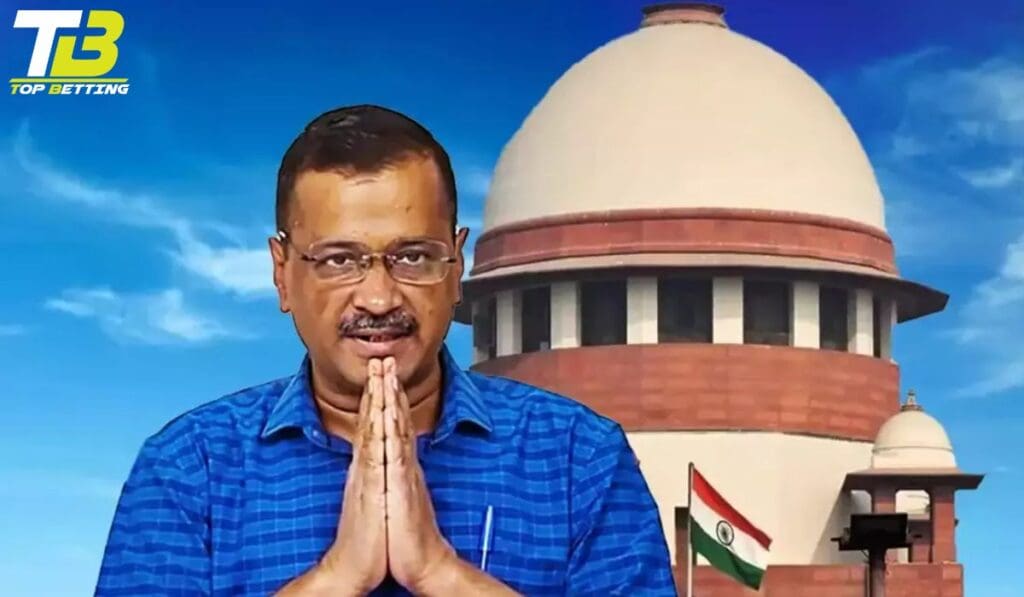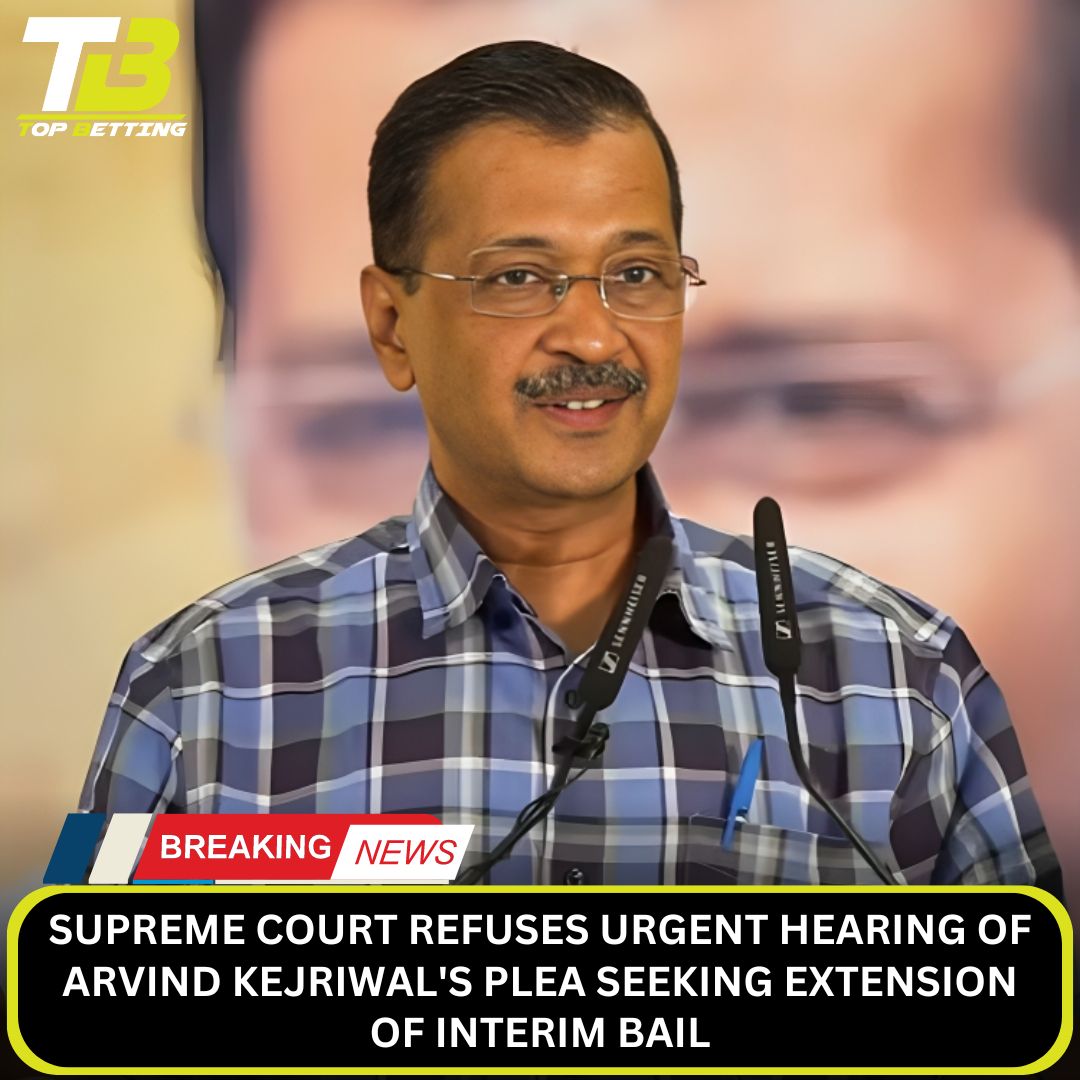
Supreme Court Rejects Urgent Hearing for Kejriwal Bail Plea
In a significant legal development, the Supreme Court of India has refused to grant an urgent hearing to Delhi Chief Minister Arvind Kejriwal plea seeking a 7-day extension of his interim bail. This decision comes as a setback for Kejriwal, who was seeking the extension to undergo crucial medical tests. The case has garnered widespread attention, given its implications for Kejriwal’s political and personal well-being.
Kejriwal’s Interim Bail and Medical Concerns
Arvind Kejriwal, the Chief Minister of Delhi, was arrested by the Enforcement Directorate (ED) in connection with the Delhi excise policy scam case. On May 10th, the Supreme Court granted him interim bail until June 1st, allowing him to campaign for the upcoming Lok Sabha elections. However, as the interim bail period nears its end, Kejriwal has now sought an extension to undergo a series of medical tests.
Supreme Court’s Refusal and Reasons
The Supreme Court’s vacation bench, comprising Justices J.K. Maheshwari and K.V. Viswanathan, has refused to grant an urgent hearing of Kejriwal’s plea. The bench has stated that the decision on the listing of the interim plea should be taken by the Honorable Chief Justice of India (CJI), as the judgment in the main matter has already been reserved.
Interestingly, the bench pointed out that Justice Dipankar Datta, who was part of the bench that granted Kejriwal’s initial interim bail, was sitting on the vacation bench until May 24th. The bench questioned why Kejriwal’s lawyers did not mention the matter for urgent listing during that time.
Kejriwal’s Plea and Justification
Kejriwal’s senior counsel, Abhishek Singhvi, argued that the medical tests prescribed by the physician are essential and require a sequence of 5-7 days to complete. He emphasized the urgency, stating that Kejriwal has a 20-day window for campaigning that ends on June 1st, and he needs the additional 7-day extension to undergo the necessary tests.
Vacation Bench’s Stance and Referral to CJI
The vacation bench, however, remained firm in its decision to refer the matter to the Honorable CJI for appropriate orders. Justice Maheshwari stated that in matters where the judgment has been reserved, the bench may not be supposed to take any further action.
The bench acknowledged the urgency expressed by Singhvi but maintained that the decision on the listing of the interim plea should be taken by the CJI. This move by the vacation bench has left Kejriwal’s fate in the hands of the CJI, who will now have to decide on the way forward.
Implications and Potential Outcomes
The Supreme Court’s refusal to grant an urgent hearing of Kejriwal’s plea has significant implications for the Delhi Chief Minister. With his interim bail period set to expire on June 1st, the denial of the extension could mean that Kejriwal may have to surrender to the authorities on June 2nd, potentially disrupting his campaign activities and personal well-being.
Kejriwal’s Concerns and Potential Consequences
Kejriwal’s plea has highlighted his concerns regarding his health and the potential consequences of not undergoing the prescribed medical examinations. The sudden weight loss, coupled with high ketone levels, could indeed be indicative of serious underlying conditions that require prompt attention.
Delaying the tests could not only jeopardize Kejriwal’s health but also impact his ability to effectively campaign and fulfill his duties as the Chief Minister of Delhi. The stakes are high, and the outcome of this case will be closely watched by Kejriwal’s supporters, political opponents, and the general public alike.
Role of the Judiciary and Public Interest
The Supreme Court’s decision to refer the matter to the CJI raises questions about the judiciary’s approach to balancing the interests of the individual and the broader public good. While the court is bound by its procedures and precedents, the public may expect a more compassionate and pragmatic approach in cases where an individual’s health and well-being are at stake.
Conclusion
The Supreme Court’s refusal to grant an urgent hearing of Kejriwal’s plea seeking an extension of his interim bail has added a new chapter to the ongoing legal saga surrounding the Delhi Chief Minister. The case highlights the intricate interplay between the judiciary, individual rights, and the broader public interest.

As the matter now rests in the hands of the Honorable CJI, the legal community, political observers, and the general public will closely follow the developments, anticipating a resolution that upholds the principles of justice, fairness, and compassion. The outcome of this case will undoubtedly have far-reaching implications, not just for Kejriwal but for the larger discourse on the role of the judiciary in safeguarding the rights and well-being of all citizens.











